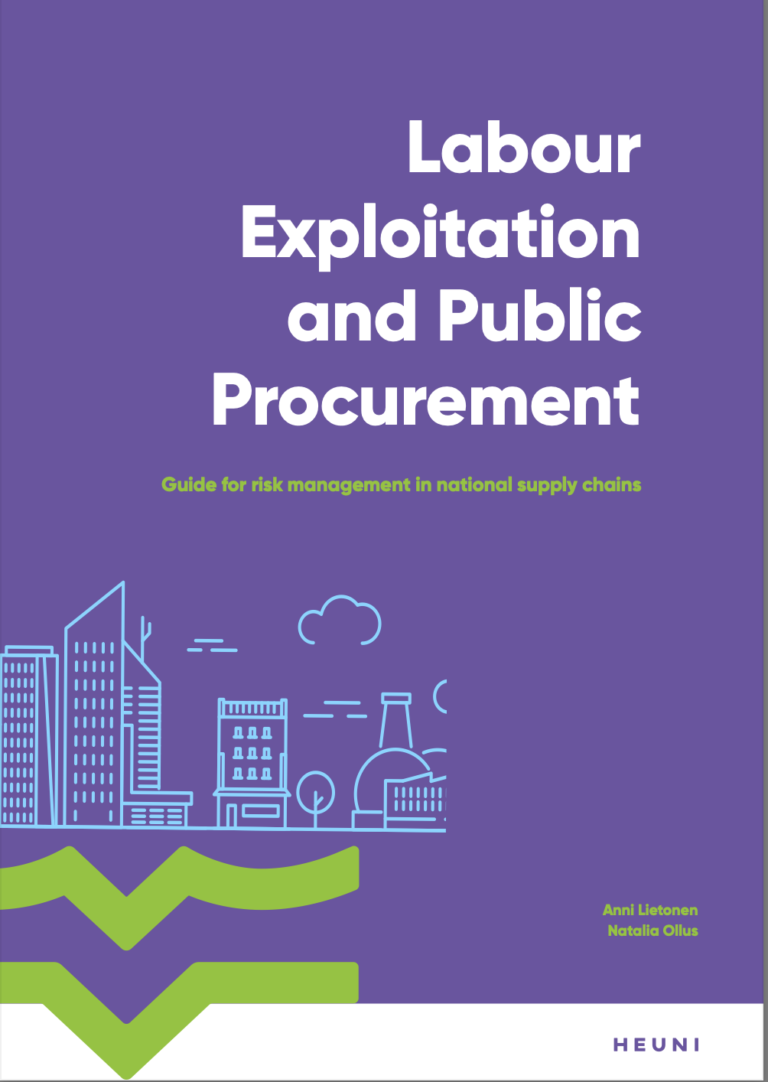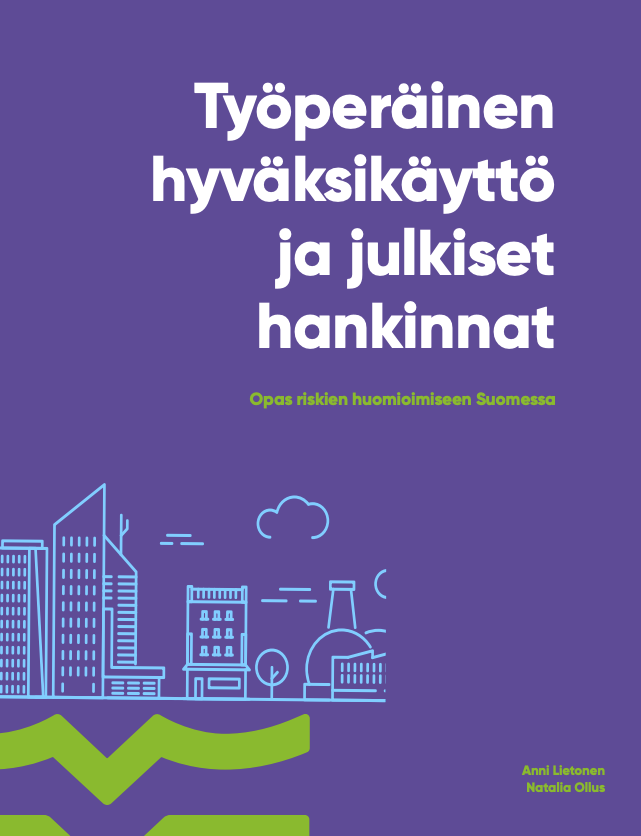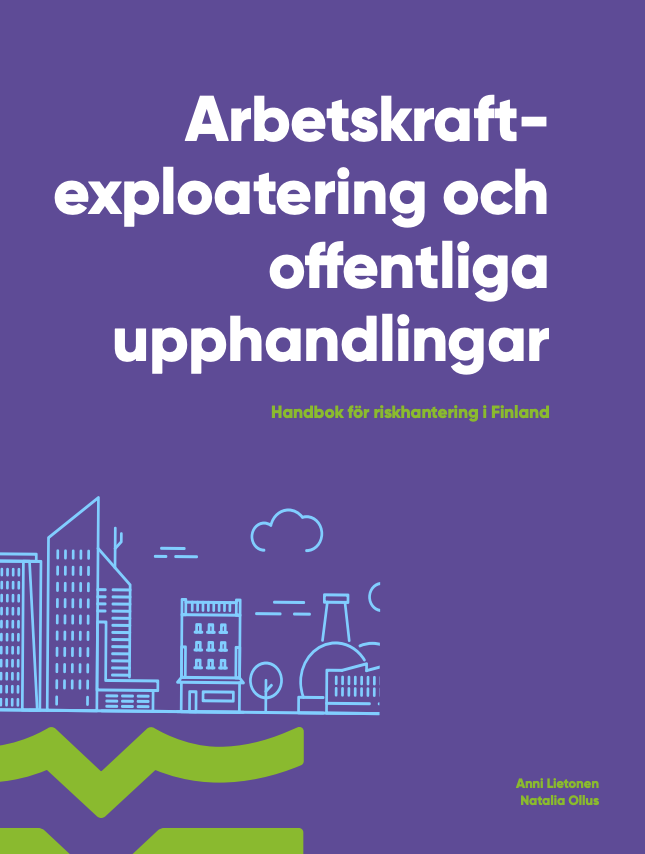Over the past decade, businesses have in many ways improved their efforts to pro- mote human rights through sustainability measures. Simultaneously, political interest in strengthening corporate social responsibility has increased along with understanding of the perspectives of corporate responsibility (CSR) and human rights responsibilities (BHR) as part of the core functions of companies. Also, the demands of consumers and investors related to transparency and sustainable business ac- tivities have been on the rise. At the same time, increasing labour mobility and the use of complex supply chains have been accelerating labour market transforma- tion across the globe. Many companies and public actors are committed to avoid causing or contributing to adverse human rights impacts through their own activ- ities, especially when the supply chain extends to high-risk countries outside Eu- rope. However, studies have shown that labour exploitation and human rights vi- olations also occur in European working life, including in Finland, in sectors such as construction, agriculture, cleaning and catering.1 Also, severe forms of exploita- tion including human trafficking for forced labour have been identified in Finland. Exploitation is often motivated by making financial profit and it involves posted or migrant workers arriving in Finland whose lack of knowledge of local practices or lack of language skills are exploited in various ways.



